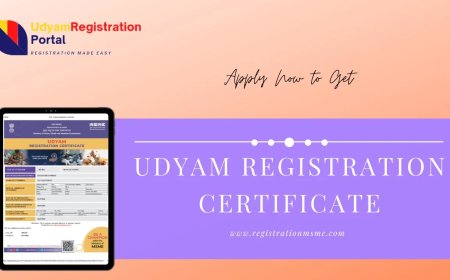What is a Better Way to Read Current Affairs for Any Competitive Exam?

Introduction
In todays competitive world, staying updated with current affairs is not just a necessityits a game-changer, especially for aspirants preparing for competitive exams like UPSC, APPSC, TSPSC, SSC, Banking, Railways, and other government exams. But with the vast information available across multiple platforms, whats the better way to read current affairs effectively?
At HAREESH THE BEST ACADEMY, we believe that mastering current affairs doesnt mean just reading newsit means understanding, analyzing, and revising it strategically. In this blog, well break down smart strategies to help you read and retain current affairs like a topper.
1. Know Why Current Affairs Matter
Before you dive into daily news, it's important to understand why current affairs are important. In most competitive exams:
-
20-30% of questions come from current affairs.
-
It influences topics in General Studies, Essay writing, Group Discussions, and Interviews.
-
It enhances your understanding of static subjects like polity, economy, and geography with real-life examples.
2. Choose the Right Sources (Dont Read Everything!)
One of the biggest mistakes students make is consuming too much information from unreliable or scattered sources. At HAREESH THE BEST ACADEMY, we recommend quality over quantity.
Best Sources to Follow:
-
The Hindu / Indian Express For editorials and national issues.
-
PIB (Press Information Bureau) For authentic government news.
-
Monthly magazines like Vision IAS, Pratiyogita Darpan, or our HAREESH ACADEMY current affairs magazine.
-
Official websites RBI, SEBI, UN, WHO for domain-specific updates.
-
Daily YouTube Sessions Our Academy provides daily video summaries tailored to exam needs.
3. Follow the 'Daily-Weekly-Monthly' Approach
A systematic approach is key to mastering current affairs.
Daily:
Spend 3045 minutes daily reading and noting down key news. Focus on headlines related to:
-
Government schemes
-
International affairs
-
Economic updates
-
Awards & personalities
-
Important days & events
-
Science & technology
-
Environmental issues
? Tip: Use apps like Inshorts or follow our Academys daily news capsule to save time.
Weekly:
-
Revise everything you read during the week.
-
Attempt weekly current affairs quizzes.
-
Watch weekly roundup videos from HAREESH THE BEST ACADEMY YouTube channel.
Monthly:
-
Refer to a Monthly Compilation PDF or current affairs magazine.
-
Use highlighters to mark important facts.
-
Practice at least one mock test focusing on current affairs.
4. Make Your Own Notes
Reading alone isn't enough. Writing helps retain information longer. Maintain a dedicated current affairs notebook or digital document categorized by topics like:
-
Polity & Governance
-
International Relations
-
Economy & Banking
-
Environment
-
Science & Tech
-
Awards & Sports
At our academy, we guide students on how to make concise one-liner notes that are easy to revise before the exam.
5. Connect Current with Static
Lets say a new scheme is launched by the Ministry of Agriculture. Instead of just noting the schemes name and benefits, link it to:
-
Constitution articles related to agriculture.
-
Recent budget allocations.
-
Relevant government programs like PM-KISAN.
This approach strengthens both your current and static knowledgeessential for exams like UPSC, APPSC Group 1 & 2, and Banking.
6. Focus on Relevance Not Every News is Useful
Many students fall into the trap of reading everything in the newspaper. But not all of it is relevant for exams.
Avoid:
-
Political gossip
-
Entertainment news
-
Stock market fluctuations
-
Crime reports
Instead, focus on policy decisions, government schemes, international developments, and economic changes. Our faculty at HAREESH THE BEST ACADEMY trains students on how to filter useful news with precision.
7. Use Visual Tools (Mind Maps, Charts, Infographics)
Information retention increases when you learn visually. Use tools like:
-
Mind maps for schemes
-
Flowcharts for budget analysis
-
Tables for comparing government programs
Our academy provides infographic-based PDFs to help you revise complex topics in a simplified manner.
8. Practice Through MCQs Daily
What you read must translate into what you can recall in the exam. Thats why practicing daily MCQs is crucial.
Benefits:
-
Boosts retention
-
Helps understand how questions are framed
-
Improves time management during exams
HAREESH THE BEST ACADEMY provides daily current affairs quiz, available both in English and Telugu, for all major competitive exams.
9. Join a Mentorship Program
Self-study is powerfulbut guided mentorship is even more impactful.
At HAREESH THE BEST ACADEMY, our mentors:
-
Help track daily, weekly, and monthly current affairs.
-
Conduct regular discussion sessions.
-
Provide personalized feedback on note-making and quiz performance.
10. Revise. Revise. Revise.
Reading once is never enough. You need to revise current affairs at least 3 times before any exam.
?? Revision Schedule Example:
1st Revision: End of the week
2nd Revision: End of the month
Final Revision: Just before the exam using MCQs and highlighted notes
Conclusion
Reading current affairs doesnt have to be stressful. With a planned strategy, the right resources, and expert mentorship from HAREESH THE BEST ACADEMY, you can transform current affairs from a burden into your strongest scoring area.
Stay consistent. Stay curious. Stay updated.







































